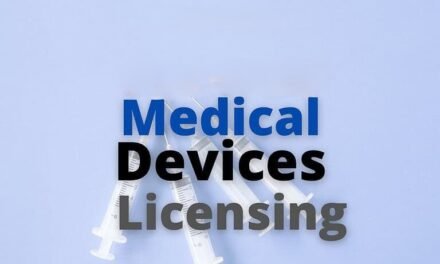
What role do medical devices play in healthcare systems worldwide?

Medical devices play a pivotal role in healthcare systems worldwide by enhancing the prevention, diagnosis, treatment, and management of diseases. They are integral to improving patient outcomes, enabling healthcare professionals to deliver high-quality care efficiently. Here’s a breakdown of their roles:
1. Prevention and Early Detection
- Screening and Monitoring: Devices like blood pressure monitors, glucose meters, and wearable health trackers help identify potential health issues before they become critical.
- Vaccination Delivery: Specialized syringes and cold-chain storage solutions ensure safe and effective vaccine administration.
2. Accurate Diagnosis
- Imaging Technologies: Devices such as X-rays, CT scans, MRIs, and ultrasounds are crucial for visualizing internal structures and diagnosing conditions like tumors, fractures, or organ anomalies.
- Laboratory Equipment: Diagnostic tools like PCR machines and rapid test kits (e.g., COVID-19 tests) enable accurate identification of pathogens and biomarkers.
- Point-of-Care Devices: Portable diagnostic tools provide immediate results, improving access to care in remote or resource-limited settings.
3. Treatment and Therapy
- Surgical Tools and Implants: From minimally invasive robotic systems to orthopedic implants, medical devices enhance surgical precision and patient recovery.
- Cardiovascular Devices: Pacemakers, stents, and defibrillators are lifesaving tools for managing heart conditions.
- Diabetes Management: Insulin pumps and continuous glucose monitoring devices empower patients to manage chronic diseases effectively.
4. Patient Monitoring and Management
- Critical Care Equipment: Ventilators, infusion pumps, and patient monitors are essential in intensive care units, especially during emergencies like the COVID-19 pandemic.
- Telemedicine Devices: Remote monitoring systems allow continuous observation of patients with chronic conditions, reducing hospital visits.
- Wearable Technology: Devices like smartwatches and fitness trackers monitor vital signs and provide real-time health data.
5. Rehabilitation and Recovery
- Physical Therapy Devices: Tools like prosthetics, orthotics, and rehabilitation robots help patients regain mobility and functionality after injuries or surgeries.
- Hearing Aids and Vision Devices: Devices improve sensory functions, enhancing the quality of life for individuals with disabilities.
6. Supporting Healthcare Efficiency
- Automation and AI Integration: Advanced devices integrate with artificial intelligence to analyze data, predict outcomes, and optimize workflows.
- Digital Health Solutions: Electronic health records and connected devices streamline patient data management and enhance collaboration among healthcare providers.
7. Public Health and Pandemic Response
- Mass Screening: Devices for rapid diagnostics and temperature scanning support disease surveillance and outbreak control.
- Scalable Manufacturing: During crises like COVID-19, devices such as ventilators and PPE ensured healthcare systems could respond to surges in demand.
8. Bridging Healthcare Gaps
- Access in Remote Areas: Portable and affordable devices bring diagnostic and therapeutic capabilities to underserved regions.
- Innovative Delivery Models: Devices integrated with mobile technology enable health interventions in low-resource settings.
9. Enhancing Quality of Life
- Chronic Disease Management: Devices like dialysis machines and oxygen concentrators enable patients to lead relatively normal lives despite serious conditions.
- Assistive Technologies: Wheelchairs, mobility aids, and communication devices empower individuals with physical limitations.
10. Driving Medical Research and Innovation
- Precision Medicine: Devices like genomic sequencers aid in developing personalized treatment plans.
- Clinical Trials: Advanced devices enable the collection of high-quality data, accelerating drug and therapy development.
Medical devices are indispensable in healthcare systems globally, improving patient care across all stages of the healthcare continuum. Their integration with emerging technologies like artificial intelligence, robotics, and digital health solutions is set to redefine the future of healthcare, making it more precise, accessible, and patient-centered.



























